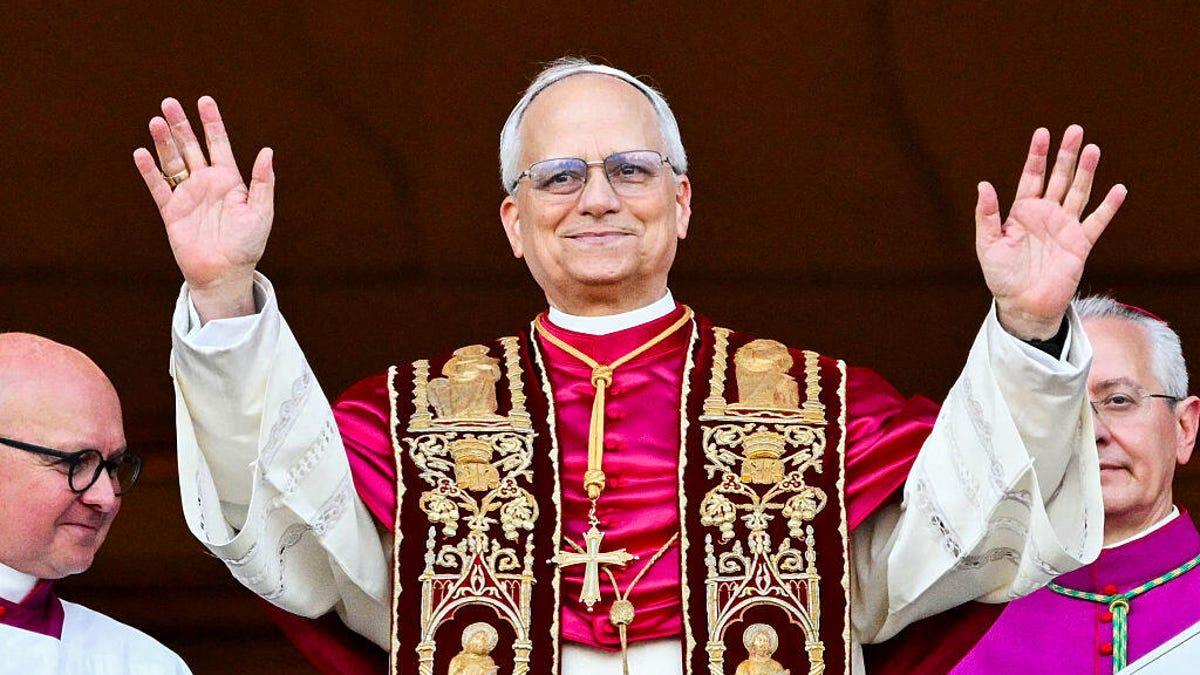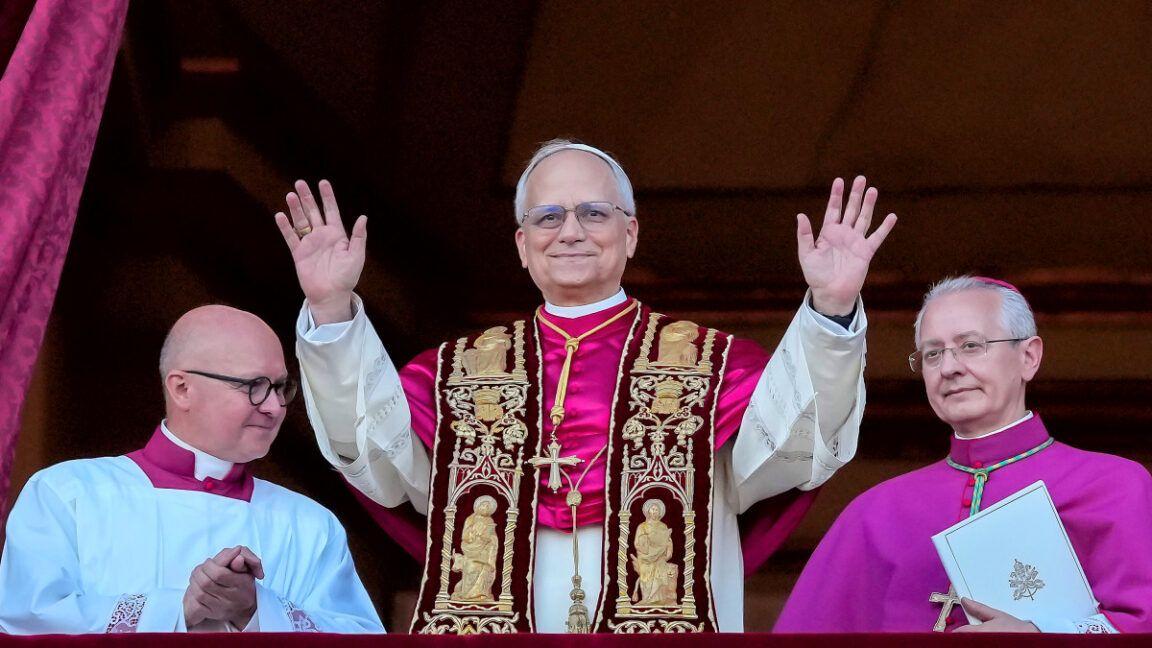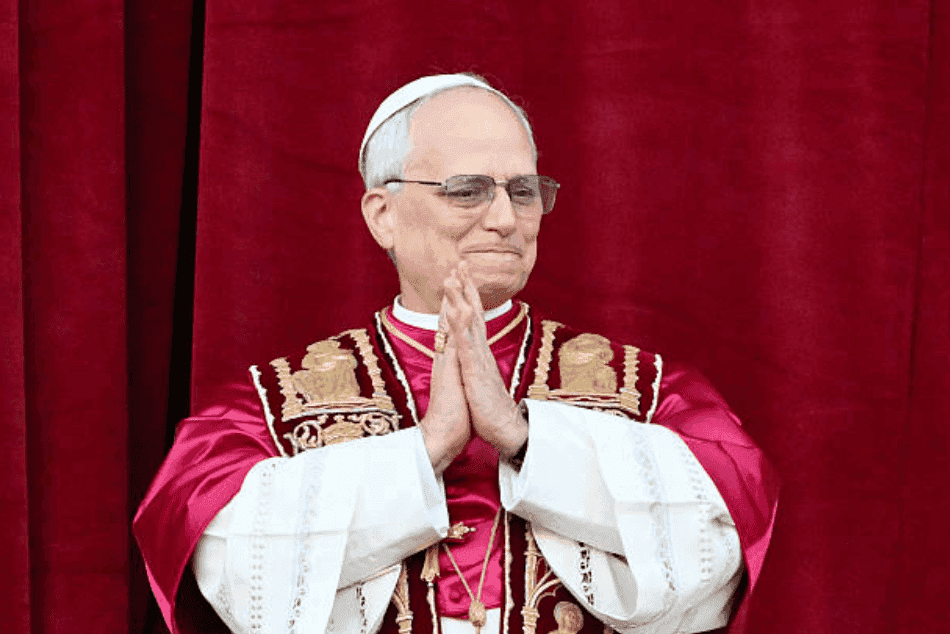AI's Attempt to Predict Papal Election Falls Short, Highlighting Challenges in Forecasting Unique Electoral Processes
2 Sources
2 Sources
[1]
AI predicted the next pope. Did it get it right?
Habemus papam! Minutes ago, the Vatican announced that U.S. Cardinal Robert Prevost would be the next pope. Artificial intelligence (AI) made its own prediction earlier this week -- but Prevost was not on the shortlist. In a paper posted on the preprint site arXiv, a machine learning algorithm that analyzed the ideological positions of the 133 high-ranking Catholic Church officials who made this decision predicted that Italian Cardinal Pietro Parolin would be the next head of the Catholic Church. Though the program was off this time, experts say its approach could eventually be useful in predicting other types of electoral contests. AI algorithms that analyze text, such as social media posts and candidates' speeches, can be very accurate at predicting political election outcomes. But papal conclaves present a unique challenge. The election process, which takes place over multiple rounds until one person receives two-thirds of the vote, has remained the same for centuries. There are no polls or primary elections to analyze, and the papabili are sworn to secrecy about their votes. "Election processes generate a lot of data, but conclaves generate very few data," says Eugenio Valdano, an epidemiologist at INSERM, the French biomedical research agency. "You know who goes in and you know who is elected pope." He adds that the dynamics of an election in which just a few dozen people choose a leader from among their own ranks are very different from those of a political election in which millions of people vote for one of two or three candidates. So with the help of Michele Re Fiorentin, a physicist at the Polytechnic University of Turin, and University of Madrid mathematician Alberto Antonioni, Valdano set out to develop a way to predict papal elections. When it was announced in February that Pope Francis was ill, this group was already studying the emergence of political and ideological factions within the church, using an algorithm the researchers had trained on five centuries of meticulous "genealogical" records of bishops and the successors they appointed. The researchers' logic is that a bishop's or pope's decision to appoint a new bishop or to elevate one to a cardinal may be partly determined by shared ideology. And when the time comes to appoint a new pope, the thinking goes, each elector is more likely to vote for a colleague who shares his own stances. To model how these dynamics could play out in the current conclave, the researchers chose four broad topics likely to be important to this year's papabili: attitudes toward same-sex couples, international migration and poverty, the Catholic Church's ongoing dialogues with other religions, and synodality -- the degree of autonomy and authority enjoyed by local church leaders relative to the pope. Using data from a website that compiles cardinals' public statements, the researchers trained an AI model to determine how progressive or conservative each elector's stance on each issue is. The model then categorized the 135 eligible electors (two cardinals didn't attend the conclave) -- and Pope Francis -- by their ideological similarity to other candidates. Next, the scientists simulated the conclave election process among their virtual cardinals. After eight or nine rounds of voting, the electors typically converged on one candidate: Parolin, currently the Vatican's secretary of state. As the Vatican's top diplomat and second-in-command to Pope Francis, Parolin is widely considered a front-runner and has the best odds on online betting sites. The model's next likeliest candidate, South African Archbishop Stephen Brislin, came as more of a surprise given his lack of media attention. Brislin is considered a moderate and has spoken out in favor of immigrants and called for the church to address poverty. Valdano says it's possible voters could converge on him as the election dwindles to a few compromise candidates. Brislin is followed by another bookie favorite: Filipino Cardinal Luis Antonio Tagle. Tagle is also a moderate and his election could support the large Catholic community in the Philippines. The model's results changed if the researchers adjusted parameters such as the most important issue in the election. If the conclave prioritizes international migration and poverty, the most likely winner by far would be the progressive Archbishop Matteo Zuppi of Italy, who is known for speaking out against anti-immigrant policies. Still, Re Fiorentin says, it's unclear how factors such as geography or popularity could play into candidates' voting decisions. For example, a politically savvy conclave could try to shore up support from Catholic communities in a particular part of the world by electing a pope from that region. "We don't have inside information," he says. "I think this is a very interesting contribution in our field," says data scientist Rohitash Chandra of the University of New South Wales Sydney. Chandra cautions, however, that the data were probably insufficient to train the model: Candidates' actual beliefs don't always match their public statements, so including information such as social media posts might improve the model's predictions. Even so, he says, the approach of categorizing candidates' positions on specific topics could be applied to other types of election predictions such as local elections. Luigi Curini, a political scientist at the University of Milan, says he likes the model election the authors ran, adding that other research into conclaves' proceedings supports the idea that ideological affinity and the voting behavior of others drive electors' decisions. He points out, however, that other factors can also influence voting, such as nightly conversations among the electors, who are sequestered in Vatican housing and live together for the full conclave. The authors acknowledge these limitations, especially the lack of historical data that could shed light on actual conclave dynamics. "To us it has been a fun and stimulating exercise, and we share hoping that fellow nerds will find it interesting."
[2]
I asked Chat GPT who should be the next Pope -- here's what AI...
As cardinals deliberate behind closed doors in the Sistine Chapel to select a successor to Pope Francis, even artificial intelligence systems refused to predict who will wear the papal crown when the white smoke clears. When prompted with the question of who should be the next pope, the world's most advanced chatbots gave thoughtful, cautious responses -- avoiding endorsements while offering a glimpse into how they approach one of the most sacred and consequential decisions in the religious world. Each chatbot approached the query differently, but all shared a common trait: a reluctance to make definitive declarations about who will become the next bishop of Rome. OpenAI's ChatGPT acknowledged that "there's no clear consensus on who should be the next pope." The bot then listed off some of the cardinals who have surfaced as frontrunners and their strengths. These included "Cardinal Peter Turkson," described as "a leading African candidate known for his work on climate change and social justice," and "Cardinal Luis Antonio Tagle," called "a prominent voice from Asia and close to Pope Francis' vision of a more inclusive Church." Also mentioned were Cardinal Matteo Zuppi, "known for his diplomatic skills," and Cardinal Robert Sarah, "a conservative figure favored by traditionalists." Grok, the AI developed by X (formerly Twitter), refrained from its usual snarky replies and provided the most detailed answer, framing the decision as inherently subjective and dependent on "one's perspective, values, and priorities for the Catholic Church." Rather than naming a preferred choice, Grok outlined key factors likely to influence the conclave. "The cardinals face a choice between continuing Pope Francis' progressive reforms -- emphasizing inclusivity, social justice, and outreach to the marginalized -- or shifting toward a more conservative, doctrinally traditional approach," the chatbot noted. It offered a list of papabile -- frequently mentioned candidates -- including Pietro Parolin, Luis Antonio Tagle, Peter Turkson, Jean-Marc Aveline and Matteo Zuppi. Grok also stressed the conclave's unpredictability, citing the adage, "He who enters the conclave as Pope, leaves as a cardinal." Claude, the chatbot created by Anthropic, adopted a reverent tone, making it clear that it would not advocate for any particular candidate. "As a matter of principle, I shouldn't advocate for any specific individual to be the next pope," Claude said. Instead, it focused on major challenges facing the Church, including "declining membership in Western countries," the "ongoing clergy sexual abuse crisis," and broader questions about "the role of women in Church leadership." Claude emphasized that the conclave is "guided by the Holy Spirit," and described the process as "deliberately private to minimize political influences." Google's Gemini offered a structured answer that focused more on qualities than individuals. While it named potential frontrunners like Parolin, Tagle, Zuppi, Turkson, and Pizzaballa, it emphasized that the selection hinges on deeper traits. "The cardinals look for a leader with strong faith, humility, and adherence to the Church's teachings," it said, also citing the importance of "pastoral experience," "administrative skills," and "a clear sense of direction for the future of Catholicism." Gemini noted the unpredictability of papal elections, reminding users that while some candidates may seem likely, "history shows that unexpected candidates can emerge as the next leader of the Catholic Church." Microsoft's Copilot kept its comments short and understated, identifying Parolin and Tagle as frontrunners while noting the broader significance of geographic representation. "There is also speculation that the next pope could come from Africa or Asia," it said. "Some experts believe this could signal a shift toward a more global representation in leadership." Ultimately, Copilot concluded, "the outcome remains uncertain." Meta's chatbot took a methodical approach, dividing candidates into tiers. Under "Top Contenders," it listed Péter Erdő, Mario Grech, and Pietro Parolin. Among "Other Notable Candidates," it named Robert Sarah, Luis Antonio Tagle, Peter Turkson, and Matteo Zuppi. Meta advised readers to consider each contender's "experience, vision, global perspective, and leadership style." It noted Parolin's diplomatic strengths, Zuppi's mediating experience, and Tagle's alignment with Francis, while also pointing out potential drawbacks, such as age or lack of pastoral experience. Perplexity AI offered one of the more data-driven responses, citing recent news reports, betting odds, and expert commentary. It described Parolin as "the main favorite," followed by Erdő, Aveline, and Pizzaballa. It also emphasized that 80% of voting cardinals were appointed by Pope Francis, adding that they "represent a range of views, not a monolith." "The new pope will face significant geopolitical and internal Church challenges," the chatbot noted, including "relations with China and managing the Church's financial and doctrinal issues."
Share
Share
Copy Link
An AI algorithm's prediction for the next pope proves incorrect, sparking discussions about the limitations and potential applications of AI in forecasting unique electoral processes like papal conclaves.

AI's Papal Prediction Misses the Mark
In a recent development that has caught the attention of both the tech and religious communities, an artificial intelligence (AI) algorithm's attempt to predict the next pope has fallen short. The Vatican announced that U.S. Cardinal Robert Prevost would be the next pope, a choice that was not on the AI's shortlist
1
.The AI Model and Its Prediction
A team of researchers, including Eugenio Valdano from INSERM and Michele Re Fiorentin from the Polytechnic University of Turin, developed a machine learning algorithm to predict the outcome of the papal conclave. The model analyzed the ideological positions of 133 high-ranking Catholic Church officials on four key topics: attitudes toward same-sex couples, international migration and poverty, interfaith dialogues, and synodality
1
.The AI model predicted that Italian Cardinal Pietro Parolin would be the next head of the Catholic Church. Other candidates highlighted by the model included South African Archbishop Stephen Brislin and Filipino Cardinal Luis Antonio Tagle
1
.Challenges in Predicting Papal Elections
The researchers acknowledged the unique challenges posed by papal conclaves. Unlike political elections, conclaves generate very little data, with the process remaining largely secretive. The dynamics of an election involving a small group of people choosing from among themselves differ significantly from large-scale political elections
1
.Related Stories
AI Chatbots' Approach to Papal Predictions
In a separate experiment, various AI chatbots were asked about the potential next pope. Interestingly, these advanced systems showed a reluctance to make definitive predictions:
-
OpenAI's ChatGPT acknowledged the lack of clear consensus and listed potential frontrunners without endorsing any specific candidate
2
. -
Grok, developed by X (formerly Twitter), provided a detailed analysis of factors influencing the conclave but refrained from naming a preferred choice
2
. -
Claude, Anthropic's chatbot, adopted a reverent tone and focused on challenges facing the Church rather than endorsing candidates
2
.
Implications for AI in Electoral Predictions
While the AI's prediction for the papal election was incorrect, experts believe that the approach could still be valuable for other types of electoral contests. Data scientist Rohitash Chandra from the University of New South Wales Sydney suggested that the method of categorizing candidates' positions on specific topics could be applied to local elections
1
.However, the limitations of the model were also highlighted. Factors such as geography, popularity, and private discussions among electors during the conclave were not fully accounted for in the AI's predictions
1
.This event serves as a reminder of the complexities involved in predicting unique electoral processes and the current limitations of AI in fully capturing the nuances of human decision-making in such contexts.
References
Summarized by
Navi
[1]
[2]
Related Stories
AI Models and Prediction Markets Diverge on Next Pope Selection
24 Apr 2025•Technology

Pope Leo XIV Rejects AI Avatar, Warns of Technology's Impact on Humanity
19 Sept 2025•Technology

Pope Leo XIV Addresses AI as a Major Challenge, Echoing Historical Church Response to Industrial Revolution
10 May 2025•Policy and Regulation

Recent Highlights
1
ByteDance's Seedance 2.0 AI video generator triggers copyright infringement battle with Hollywood
Policy and Regulation

2
Demis Hassabis predicts AGI in 5-8 years, sees new golden era transforming medicine and science
Technology

3
Nvidia and Meta forge massive chip deal as computing power demands reshape AI infrastructure
Technology





